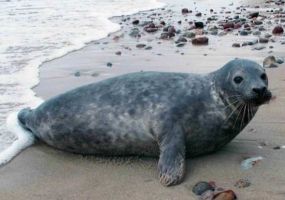Estonia, EU – Baltic States, Legislation, Markets and Companies
International Internet Magazine. Baltic States news & analytics
Friday, 26.04.2024, 22:07
Palling: trade in seal products from Estonian islands guarantees preservation of traditions
 Print version
Print version |
|---|
According to the proposal on the European Union regulation, it is planned to prohibit marketing of products derived from seal hunts for non-profit purposes.
“Seal hunting has never had commercial purposes in Estonia, it is a part of the traditions of small islands, first of all on the island of Kihnu. If it is allowed to hunt grey seals, the game should be used as much as possible and it should be permitted to sell handwork products made from seals. It would contribute to the preservation of local communities and their traditions,” Palling said.
Since 15 April 2015, it is again permitted to hunt grey seals. The quota for 2015 is one percent of the specimens counted in the previous year, or 53 seals.
“The parliament of Estonia will propose to permit the communities of small islands to hunt seals in the traditional way and make handwork products from them for sale. The proposed legislation should formulate the conditions for marketing of seal products more clearly, so that the traditions of the small communities of the EU would be preserved,” wrote Palling.
The proposal for the protection of traditions connected with the grey seals was made by the European Union Affairs Committee at its 20 April sitting.
It is planned to bring the EU Regulation on trade in seal products into compliance with the recommendations and rulings of the World Trade Organisation (WTO). Pursuant to the existing regulation, it is allowed to market seal products that have been derived from hunts traditionally conducted by indigenous communities. It also contains exceptions for the sale of products derived from seals hunted for the purpose of the sustainable management marine resources.
According to WTO, this exception is discriminating because it is not possible to make a clear distinction between the seal products obtained from hunts conducted for non-profit purposes and those obtained from commercial hunts.








 «The Baltic Course» Is Sold and Stays in Business!
«The Baltic Course» Is Sold and Stays in Business!

